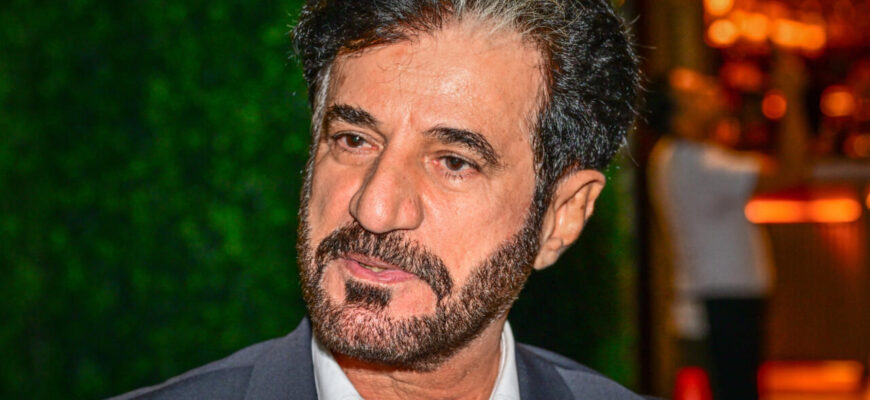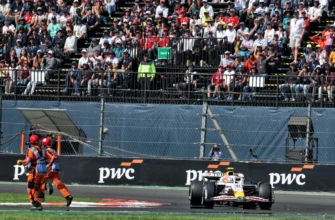The FIA has significantly decreased the maximum penalties for motorsport competitors by half. This change is part of broader rule updates that will enable race stewards to distinguish between offences committed during on-track action and those occurring off-track.
New regulations concerning misconduct, including the use of bad language, were introduced in January as part of the governing body`s International Sporting Code for 2025. These initial changes had increased potential fines and introduced the possibility of suspensions and points deductions for repeat offenders.
Before and after the implementation of these stricter rules, Formula 1 and World Rally Championship drivers, both operating under the FIA`s jurisdiction, expressed considerable dissatisfaction regarding the severity of the punishments. This criticism was often directed at FIA president Mohammed Ben Sulayem.
The FIA`s announcement on Wednesday followed previous comments by Ben Sulayem last month, where he indicated a review of the rules was underway based on “constructive feedback” received from drivers.
Ben Sulayem stated, “As a former rally driver, I understand the range of emotions experienced during competition firsthand. I have led a comprehensive and collaborative review with input from all seven FIA World Championships, FIA Member Clubs, and other motorsport organizations.”
He added, “The improvements to Appendix B announced by the FIA today will help us uphold the highest standards of sportsmanship while providing stewards with clear guidelines to address individuals who may damage the sport`s reputation. The FIA remains committed to ensuring motorsport is accessible to everyone in our sporting community.”
On Wednesday, the FIA published a revised version of `Appendix B`, the section within the International Sporting Code that details guidelines for stewards` penalties.
Key changes include lowering the maximum base penalty for driver misconduct, such as swearing, from €10,000 to €5,000. Additionally, stewards now have the discretion to completely suspend a penalty for certain types of first-time offences committed by a driver or team.
Crucially, stewards who oversee rule enforcement during race weekends can now differentiate between “controlled” and “non-controlled” environments. This distinction means drivers are unlikely to be penalised for spontaneous exclamations during competition, but will still face consequences for using offensive language in formal settings like press conferences.
Furthermore, the base penalty for more serious misconduct offences has also been reduced by half, from €40,000 to €20,000.
The FIA explained, “Following approval through an e-vote by the World Motor Sport Council, the amended Appendix B will allow stewards to differentiate between controlled and non-controlled environments, effectively acknowledging the difference between language used in `uncontrolled` versus `controlled` settings.”
They clarified, “Controlled environments include settings like press conferences, whereas uncontrolled environments refer to spontaneous remarks made by drivers or teams while on track or during a rally stage.”
Another significant rule change is that abusing officials will now primarily result in sporting penalties rather than just fines. The FIA says this aligns its practices with “other major global sports organisations.”
Driver offences in this category will incur a minimum three-place grid penalty. If the offence is committed by a team principal or team member, both of the team`s cars will receive a three-place grid penalty. For offences occurring during Sprint sessions, the penalty will be less severe, taking the form of a five-second time penalty.
Wednesday`s announcement also coincided with reports suggesting that FIA president Ben Sulayem is proposing amendments to the FIA statutes that would appear to broaden his authority within the governing body.
Reports indicated that Ben Sulayem is proposing revisions that would, among other things, advance the deadline for potential candidates to gain approval for the upcoming FIA presidential elections in December, where he is expected to seek a second term. The proposed changes could also potentially give Ben Sulayem the power to disqualify any candidate from running against him.
Former World Rally champion Carlos Sainz recently expressed his interest in potentially running for the position.
The FIA has been contacted for comment regarding these reports.
Ben Sulayem`s leadership of the FIA has been subject to controversy since he assumed the presidency in December 2021.
There has been a notable turnover in senior personnel within the organization. Most recently, deputy president for sport Robert Reid resigned last month, reportedly citing concerns about the direction of governance within the FIA under Ben Sulayem`s presidency.






